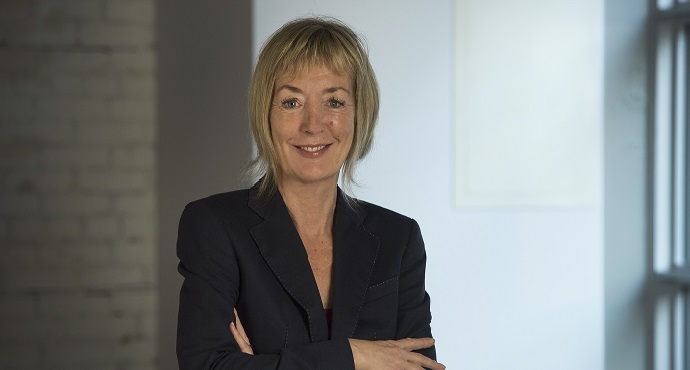The need to develop international sales is a hot topic in the region. Entrepreneurs often need to work hard to win introductions. When Danish-born Pernille Fischer Boulter arrived in Nova Scotia, she wrote letters introducing herself to 100 of the province’s top CEOs.
In her new book, Tales from an Immigrant Entrepreneur, the author describes how this enabled her to meet influential people, including John Risley, then CEO of Clearwater Fine Foods.
Pernille, the founder of Kisserup International Trade Roots, has worked on export development with small, micro and medium businesses in 90 countries. But when she arrived in Chester in 1998, after marrying Canadian entrepreneur Keith Boulter, she struggled to find what she wanted – a sales job in an IT company.
“I’d worked in a high-paid, high-stress sales job in Europe (for American computer manufacturer Commodore). I’d been responsible for hundreds of dealers, budgets of millions of dollars, profit and loss responsibility and daily international contact,” she said.
“Now, my contacts were limited to my husband and the people I called or tried to initiate contact with.”
Most of the 100 CEOs she contacted did respond, although some were dismissive. Stephen Wetmore, a former CEO of Canadian Tire and Bell Aliant, was helpful. He said she wouldn’t find an IT job in Atlantic Canada. He said the region didn’t yet think of Europe as a possible market, and that its IT companies hadn’t grown large enough to hire someone with European experience.
“Focus larger and focus on multi-sector,” he advised. That message was echoed by others. It’s advice Pernille is still grateful for.
John Risley led her to several opportunities, including with Lee DeWolfe, who ran Hawboldt Industries, an engineering and fabrication firm in Chester that Risley co-owned. Hawboldt made propellers and winches for fishing trawlers. Pernille helped the company enter the oil and gas sector by finding leads in the North Sea.
After TopLog, Yeloglu Moves On and Up at Microsoft.
Many challenges in trade relationships result from differing perspectives, she said.
“I was in the Netherlands, matchmaking for a Nova Scotia delegation, when two Dutch business people said, ‘We really like Canadians, but we like doing business with Americans better.’
“They said Canadians are so polite, you never know what they think. They never really say no, they never really want something. It’s always balanced, no excitement, no rejection.”
Pernille promotes diversity among her own staff and regularly offers immigrants work experience. She believes immigrants are a huge, unrecognized resource for Canada.
“Immigrants have a lot of knowledge and it baffles me there’s not a better system in place to take advantage of our insights,” she said.
“Companies will hire Kisserup to brief them on the cultural differences between Canada and China. Meanwhile, there’s a huge, untapped immigrant community. Many immigrants would love to share what they know if only there was a formal way of doing so.”
In 2007, Kisserup developed a searchable database through which potential exporters could find immigrants with relevant experience. But, she said, the private sector didn’t take up the idea. She would like to reinvigorate the project and take it national.
“I envision matching businesses that don’t have transition planning with immigrant entrepreneurs who might take over companies,” she said.
“I’d also make funding available so small and medium-size enterprises could pay an international business graduate or immigrant for a year to help with their business development, international marketing, and social-media development.
“I’d set up a program to help small businesses achieve global certifications. These certifications are the main hindrances for businesses looking at exporting.”
She believes immigrating to Nova Scotia made her an entrepreneur.
“If I’d stayed in Denmark, I would probably not have started my own company,” she said. “I believe anyone can develop as an entrepreneur in the right environment, with the right people and the right support.”










